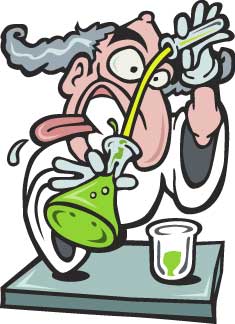Ya Don't Miss the Water?
This is a full length video in five parts on the problems of water in Southern California. The head of the Army Corps of Engineers, Regulations Branch, Mark Sudal, Federal Environmental Protection Agency, Wayne Praskins, head of UCLA Environmental Health Sciences Dr. Richard Ambrose, and many others participated in this documentary.
The history of Southern California's water are described, the present political and economic issues are shown, and answers are offered. Polictics, money, and power put the region at risk. Those who have little are trampled. Where do the homeless go for a drink? What will happen if most of the ground water is tainted with toxins? How many more people can the region add and still live a good life - one with enough clean water?
22 min 34 sec
http://video.google.com/videoplay?docid=7724895779815932525
The first part opens with Harry, the anouncer. He describes where we get our water. Then those who have the water rights, those who clean the water, those who destribute the water, those who use the water and those who abuse the resource speak.
13 min 45 sec
http://video.google.com/videoplay?docid=2130077764471027395
Section two begins with a question of confidence in humanity's ability to salve all of its problems of excesses.
Imperial Irrigation District's Division Two Director, Bruce Kuhn, gives a synopsis of the history of the Colorado River water use and water rights in the Southwest. The camera takes you to the Owens Valley, Mono Lake, the California Aqueduct. The camera also shows the living conditions of the areas compared to the living conditions of many who use the water in Los Angeles.
16 min 42 sec
http://video.google.com/videoplay?docid=-521519152459834196
Section three: the economics and politics of water are introduced. We watch how the poorest of the poor of one of the wealthiest regions in the nation, the homeless, live and drink.
The builders in Santa Clarita talk about the "extreme number of activists present inaccurate, inflammatory "information" in an attempt to stop all development." and another lawyer talks about how he visits the Fish and WIldlife Services in the Carlsbad office every six weeks.
9 min 59 sec
http://video.google.com/videoplay?docid=-635935620065039876
Section four begins with Harry asking Dr. Richard Ambrose of UCLA Environmental Health Science and Engineering, whether wetlands can clean the upper watershed water of pollutants.
Then Surfrider Foundation discusses the problems of PCBs left in the soils around the oil wells in the wetland. The mayor of Huntington Beach enters her reaction to a project that will change the function of the Bolsa Chica wetland. Surfrider pictorially shows how the project may turn out.
Finally, the head of External Affairs of the Metropolitan Water District, Adan Ortega, discusses perchlorate and uranium tailings that imperils the Colorado River Water and all of its customers.
16 min 14 sec
http://video.google.com/videoplay?docid=-2481139490578348602
The final section focuses on the pollutant perchlorate. Dr. Michael Collins, professor or toxicology at UCLA Environmental Health describes the substance and how it may effect the human population that may be exposed to it in the drinking water.
Harry tries to make sense of it all but gets frustrated. How do we fix this problem?
Producer: Terry Young


0 Comments:
Post a Comment
<< Home